Why Immersive Summer Programs Matter to Health Care Students
Read two first-hand experiences of how University of Arizona Health Sciences summer programs help future health care professionals get research experience and learn about health disparities.
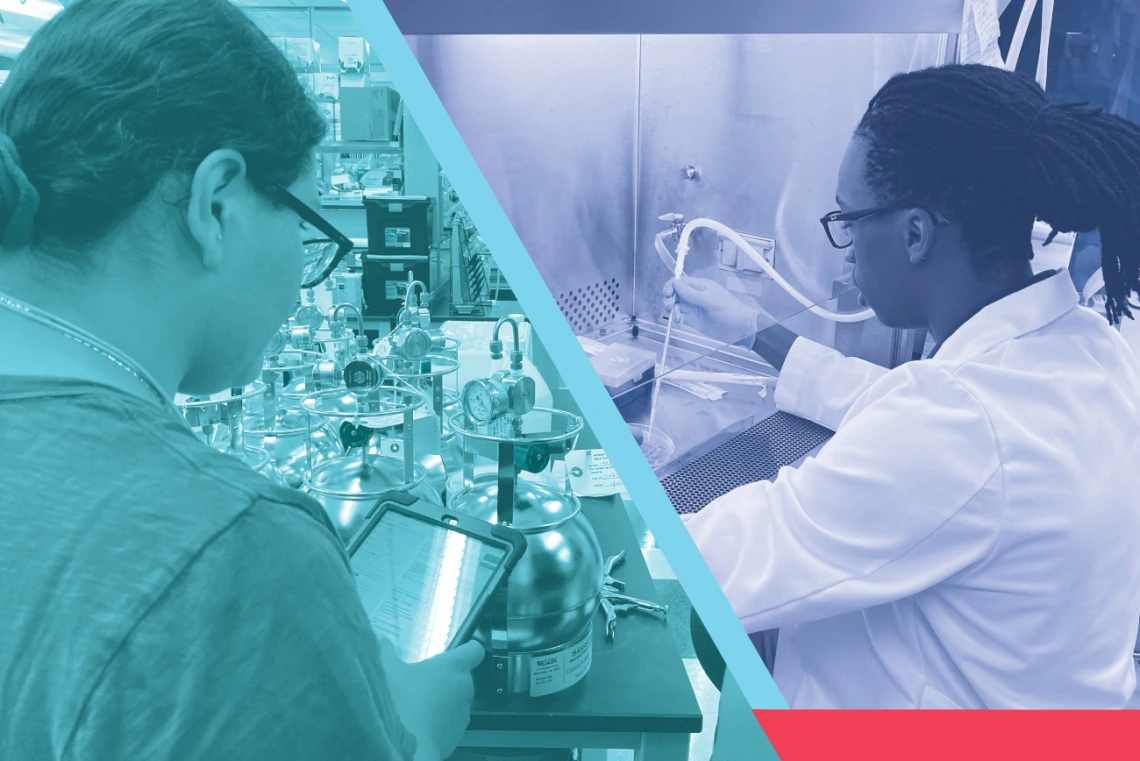
Summer programs through the University of Arizona Health Sciences Office of Equity, Diversity and Inclusion focus on fostering diversity in health professions and setting students up for graduate and medical school success. Two students, Emma Gallardo Martinez and Tawanda Zvavamwe, provided a glimpse into their 10-week experiences.
Emma Gallardo Martinez is a public health major at the University of Arizona Mel and Enid Zuckerman College of Public Health.
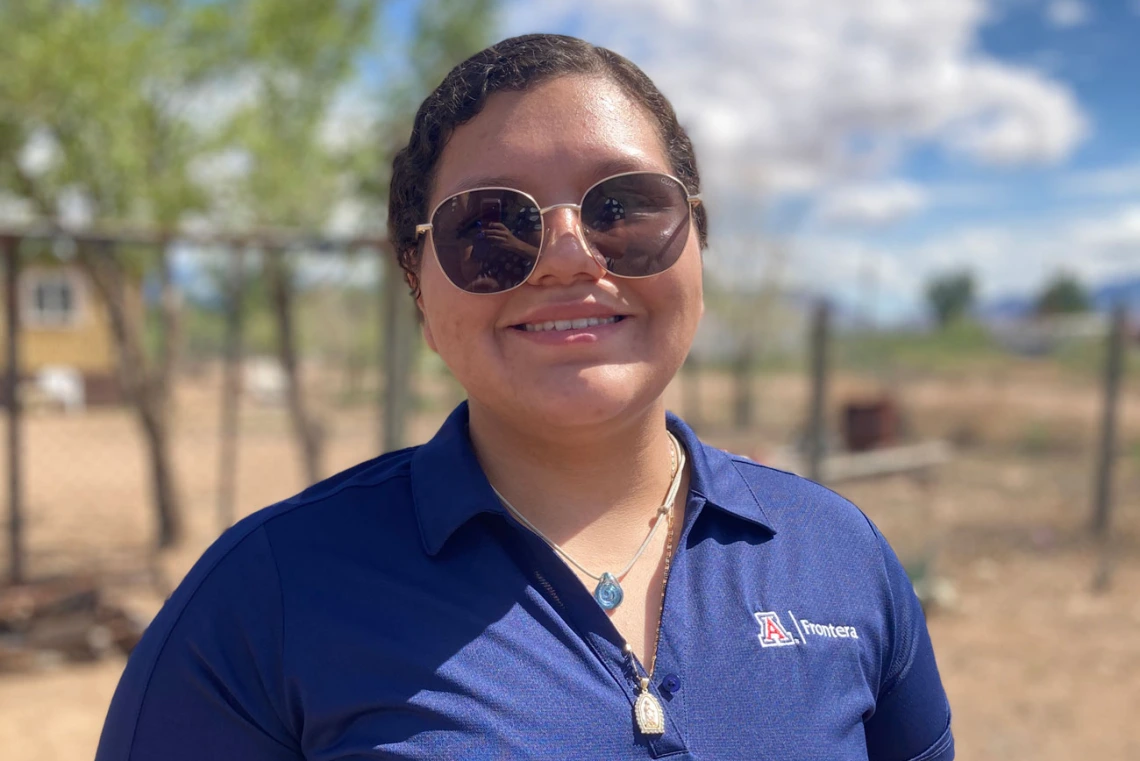
Emma Gallardo Martinez
The Focusing Research on the Border Area (FRONTERA) program fit many great experiences into one summer, like volunteering in a community, virtual clinical shadowing and writing workshops. Sometimes it's hard to do everything you need when you're on the pre-health track, and working in a lab has been fantastic. The faculty and researchers are happy to have us there, and I hope to continue working in this lab.
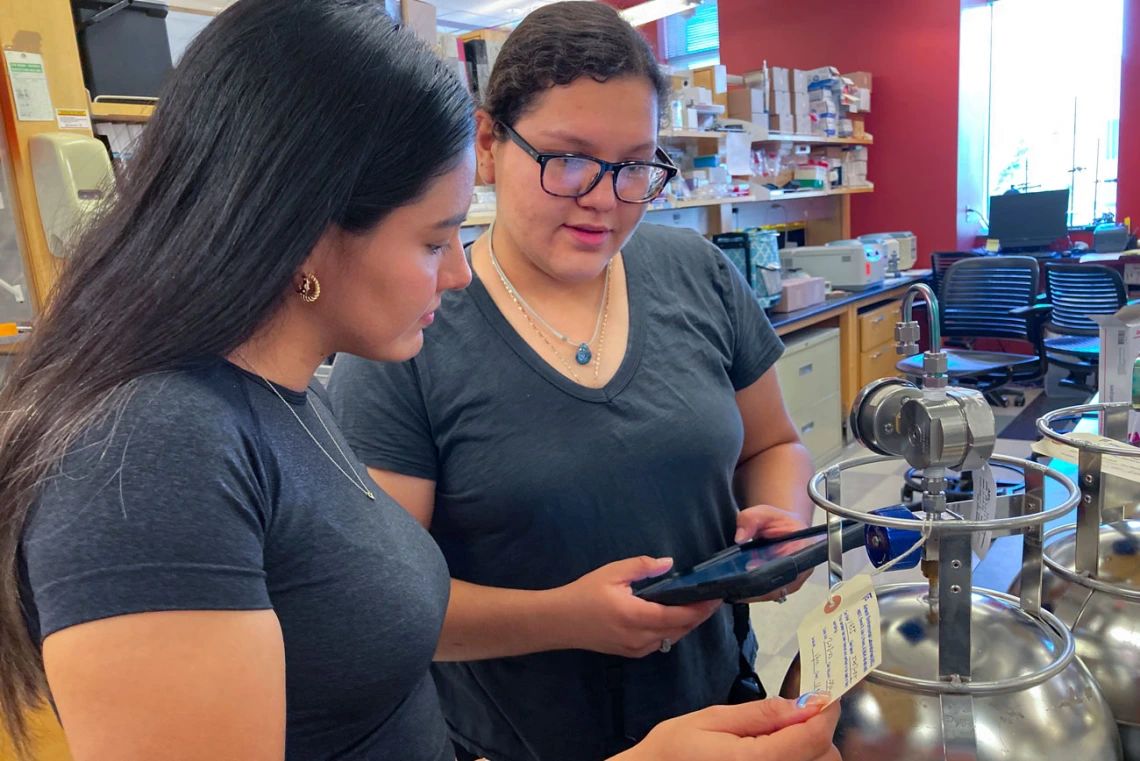
(from left) Fernanda Camargo, another FRONTERA participant, and Emma Gallardo Martinez examine Summa canisters used for air monitoring and sampling.
The people in the lab speak Spanish, which is important since we focus on Hispanic- and minority-owned businesses. They need to know that their job shouldn't hurt them. Usually, they don't know how toxic certain products can be until we start working with them. We give individual results for each hair stylist and mechanic, so they understand what contains toxic chemicals and can consider swapping them with an alternative. With this research project, there's that satisfaction of impacting someone's life.
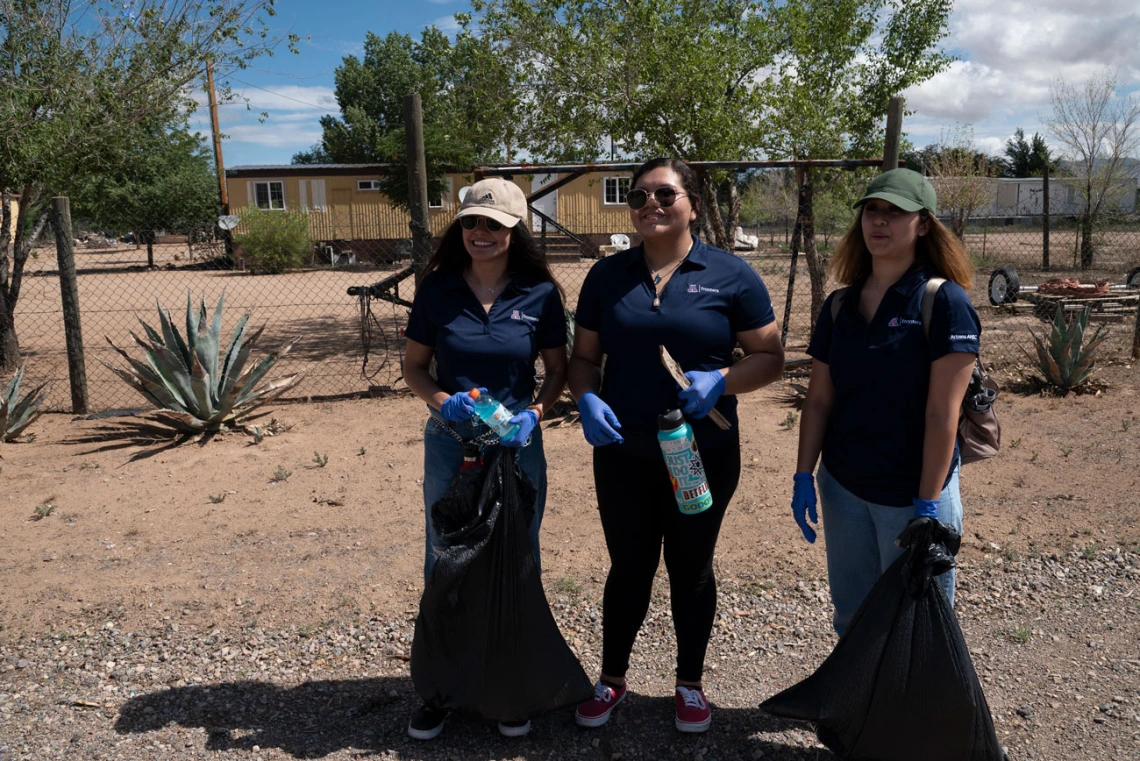
Martinez (center) and her fellow FRONTERA/BLAISER participants spent a hot Friday morning cleaning up streets in the community of Winchester Heights, about 95 miles east of Tucson.
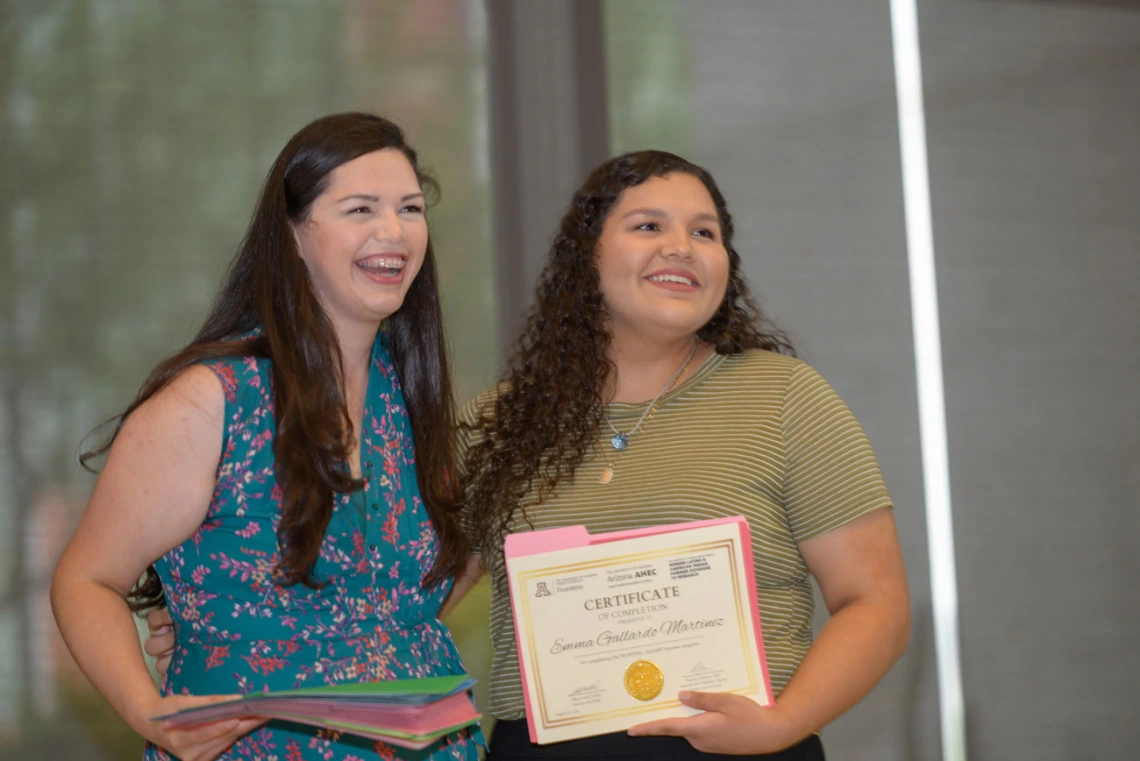
FRONTERA/BLAISER program coordinator Genesis Garcia hands Martinez her certificate of completion at the closing ceremony in mid-August.
Tawanda Zvavamwe is a physiology major at the University of Arizona with a minor in emergency medicine and biochemistry.
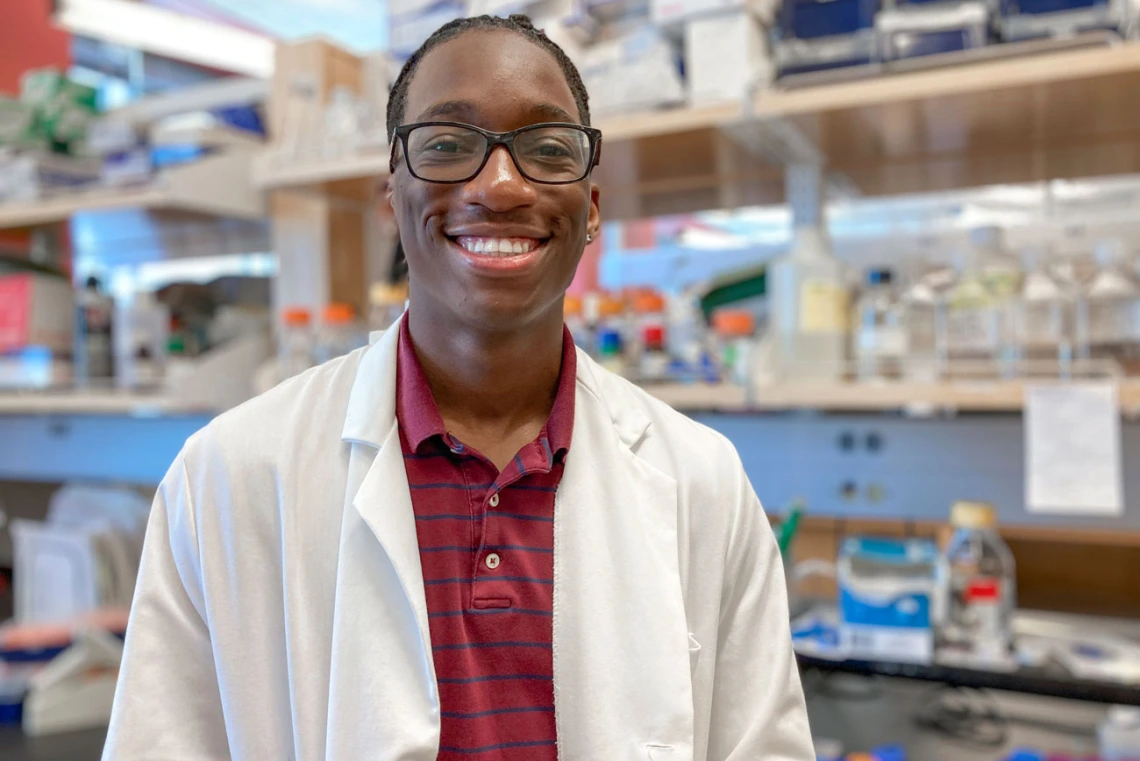
Tawanda Zvavamwe
When I'm not in the lab or class, I usually volunteer as an emergency medical technician (EMT) with the University of Arizona Emergency Medical Services. Through volunteering, I've seen patients in the field before they get to the hospital. Every future physician should experience helping a person in critical condition get better over the short period you are with them.
The Border Latino and American Indian Summer Exposure to Research (BLAISER) program has been a blessing in disguise. Initially, I focused on research, but this program also had other benefits. It was an all-encompassing experience for a pre-med student like myself, from MCAT prep and virtual clinical shadowing to all of the support from the program coordinator, Genesis Garcia, and the program director, Dr. Allison Huff.
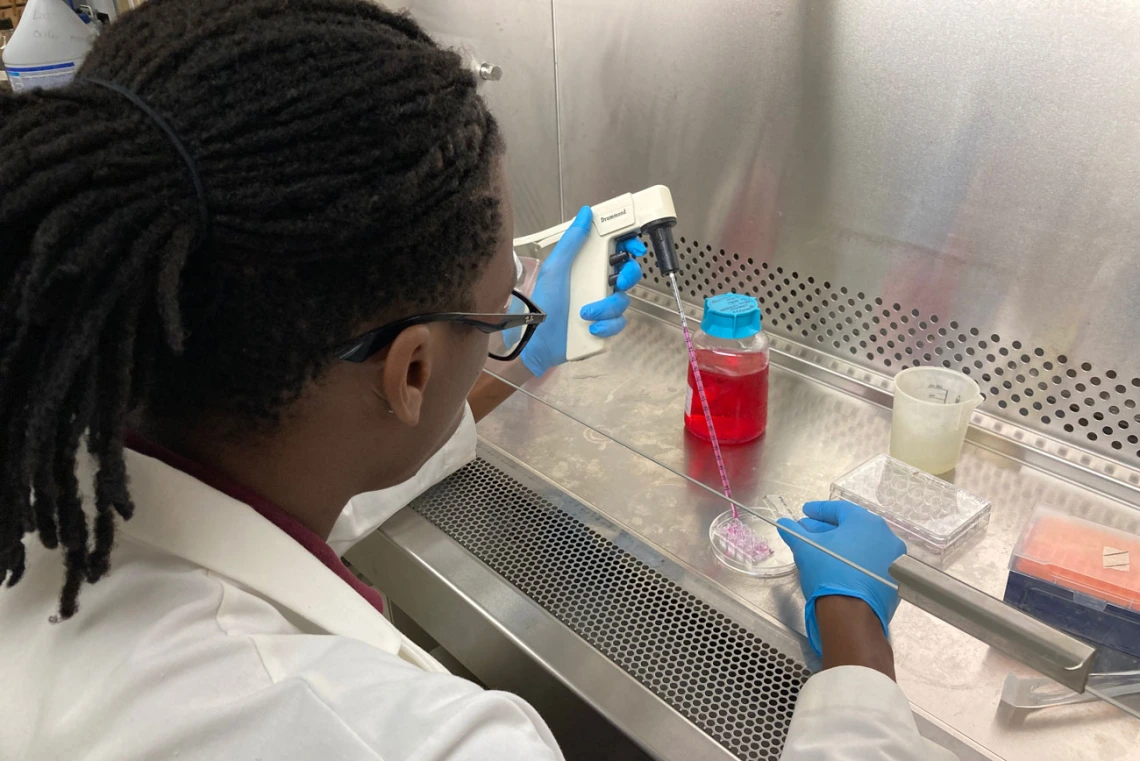
Zvavamwe feeds porcine pigmented epithelial cells used in his experiments because of their bright pigmentation.
Our trip to Wilcox, Arizona, for a community clean-up event left a lasting impression on me – especially the young girl translating between Spanish and English as we worked in groups cleaning up neighborhood streets.
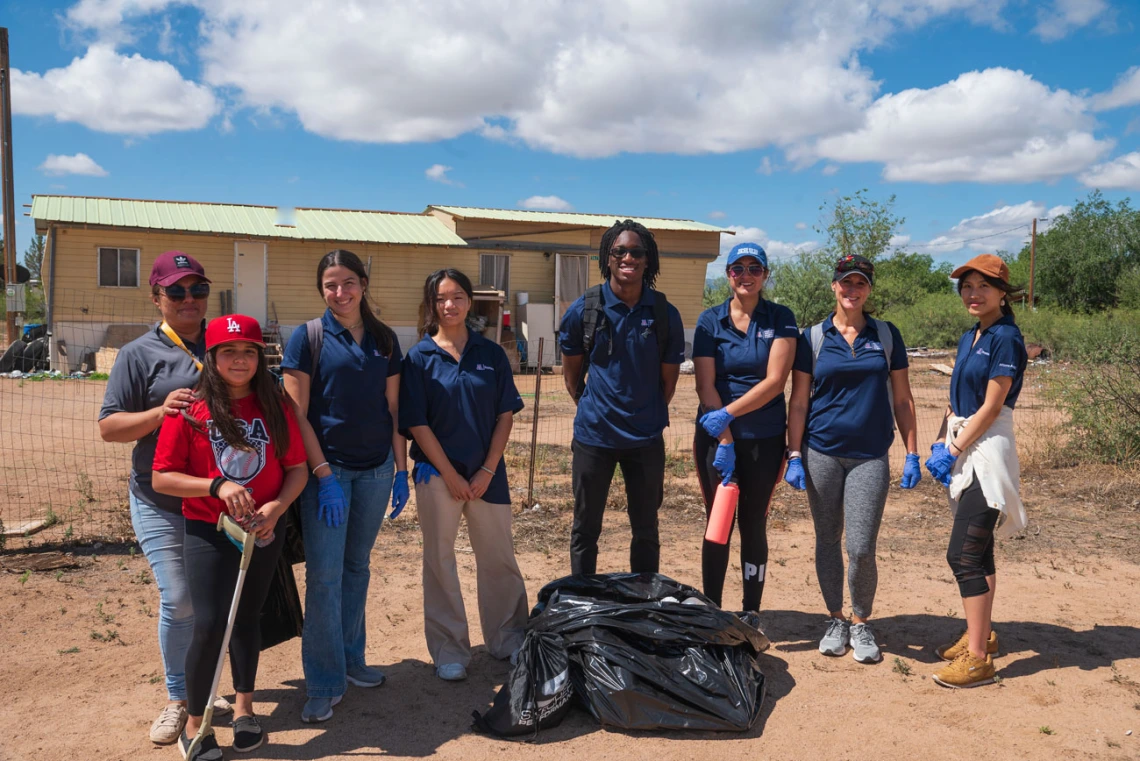
Zvavamwe and his fellow FRONTERA/BLAISER participants at the community clean-up event near Wilcox, AZ.
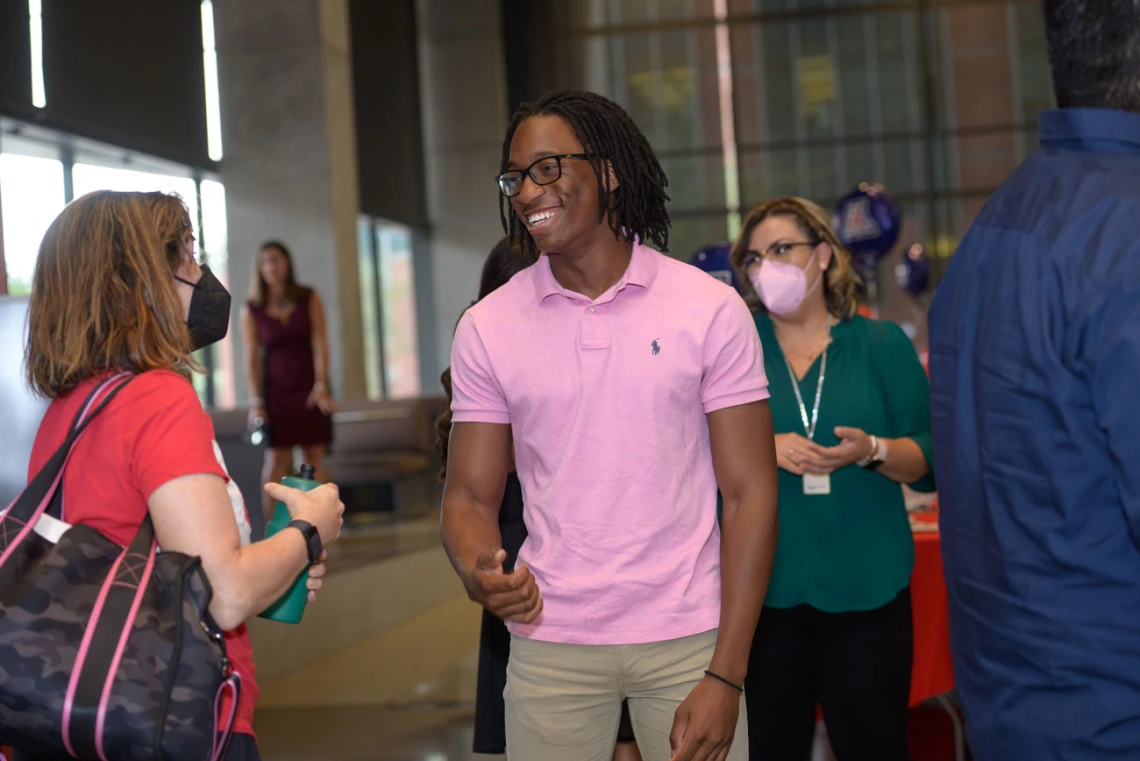
Zvavamwe takes a moment to catch up with staff and students at the closing ceremony of the FRONTERA/BLAISER program.
About the Author
The University of Arizona Health Sciences is the statewide leader in biomedical research and health professions training. The UArizona Health Sciences includes the UArizona Colleges of Medicine (Phoenix and Tucson), Nursing, Pharmacy, and Mel and Enid Zuckerman College of Public Health, with main campus locations in Tucson and the growing Phoenix Biomedical Campus in downtown Phoenix.

